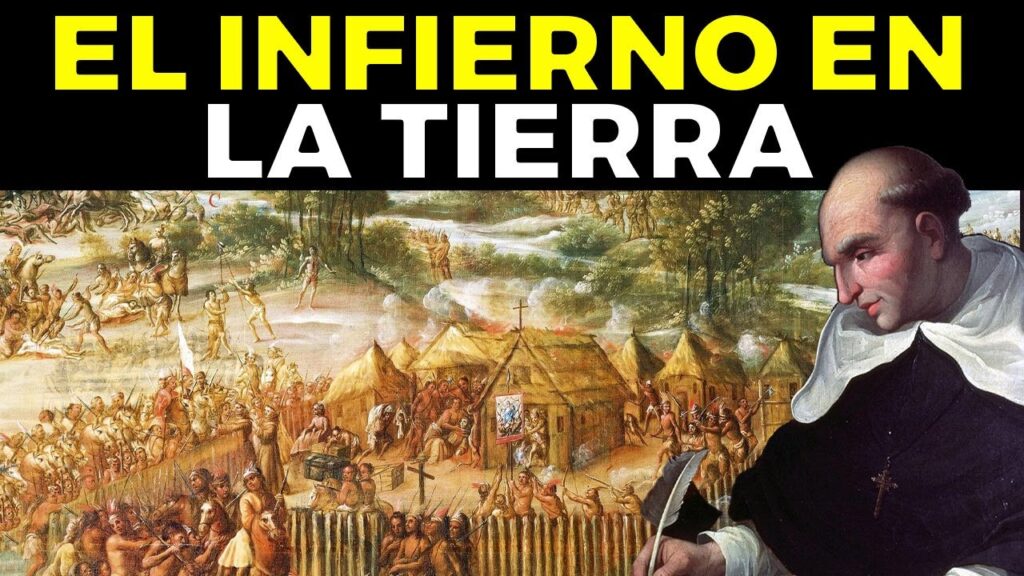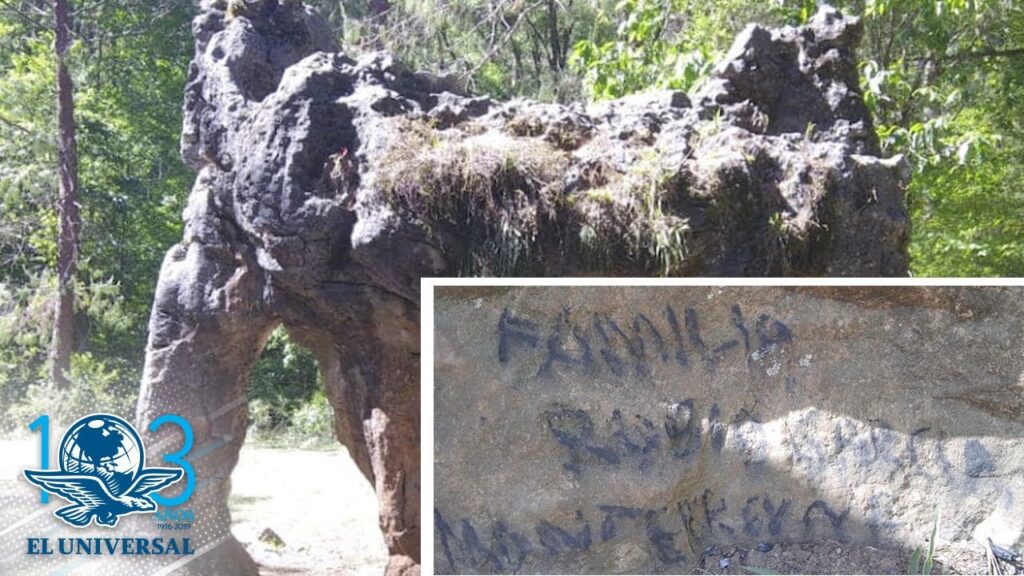The Life of Fray Bartolomé de las Casas: The Dominican Who Spoke Out Against Cruelty
Fray Bartolomé de las Casas was an early Spanish historian and a Dominican missionary who became famous for his advocacy of the rights of the indigenous people of the Americas. His work as a historian is fundamental to the understanding of the Spanish colonization of the Americas. Born in 1484 in Seville, Spain, de las Casas witnessed firsthand the brutality of the Spanish towards the native populations. He initially received an encomienda for his military services, which granted him land and the labor of the indigenous people. However, his turning point came when he realized the inhumanity and injustices being perpetrated against the native peoples, who he came to passionately defend.
In 1515, de las Casas gave up his encomienda and began a lifelong crusade for the protection of the indigenous. He argued for the recognition of the natives as rational beings who deserved the same rights and freedoms as any Spaniard. His most famous work, “A Short Account of the Destruction of the Indies”, provided a harrowing description of the atrocities committed against the indigenous communities. The book was a significant part of his advocacy, as it stirred the conscience of many in Spain and influenced the passage of new laws aimed at protecting the indigenous peoples, though the implementation of these laws was often another matter entirely.
By becoming a Dominican friar, Bartolomé de las Casas sought a platform to influence policy and champion his cause. He even served as the Bishop of Chiapas in modern-day Mexico, where he continued to fight hard for indigenous rights. De las Casas’s unwavering commitment led to the creation of the “New Laws” in 1542, which, although imperfect, were meant to abolish the worst abuses against the indigenous populations by the Spanish colonizers. His enduring legacy is one of compassion, justice, and an unrelenting pursuit of human rights during an era of extreme colonial exploitation.
Exploring the Impact of Fray Bartolomé de las Casas on the Conquest of Mexico
A Voice for the Voiceless
When we reflect on the conquest of Mexico, it is impossible to overlook the influential role of Fray Bartolomé de las Casas, a Dominican friar who became a fervent advocate for the rights of indigenous peoples. De las Casas, horrified by the brutal treatment and enslavement of the natives by Spanish conquistadors, dedicated his life to their protection. His commitment to justice and equality set a moral backbone during an era of relentless colonization.
Historic Reforms Inspired by Advocacy
De las Casas’s relentless lobbying led to significant legislative reforms, most notably the New Laws of 1542, which aimed to halt the maltreatment of the indigenous people and limit the power of the encomienda system—a system that effectively enslaved the indigenous populations. Although implementation was problematic and the laws were partially rolled back due to colonial resistance, they represented a groundbreaking step towards the recognition of human rights in the Americas.
Writings that Shifted Perspectives
Perhaps the most enduring legacy of De las Casas lies in his extensive writings, which provided a first-hand account of the conquest and its implications. His book, “A Short Account of the Destruction of the Indies”, was an explicit expose of colonial cruelty and became a tool for those advocating for policy change in Spain. By documenting the atrocities, De las Casas’s work served to inform and influence the European public and the monarchy about the true cost of their overseas endeavors.
Complex Legacy in Modern Discourse
Today, Fray Bartolomé de las Casas is a complex figure in Mexico’s history. To some, he is remembered as a pioneering human rights activist whose efforts helped to transform colonial policy and save countless lives. Yet, critics argue that his proposals, including the suggestion to replace indigenous labor with African slaves, mar his legacy. As travelers in Mexico, discovering the layers of De las Casas’s impact on the country’s past remains a thought-provoking aspect of any historical journey.
“`html
Understanding Fray Bartolomé de las Casas’ Fight for Indigenous Rights in Mexico
Within the storied tapestry of Mexico’s history, one man stands out as an indomitable advocate for indigenous rights during the colonial era: Fray Bartolomé de las Casas. Born in 1484 in Seville, Spain, De las Casas witnessed firsthand the exploitation and oppression of the native peoples as a colonist in the New World. His transformation from a landowner and encomendero, who benefited from the labor of indigenous people, to a fervent protector of their rights, marks a remarkable evolution in his personal ethos and a pivotal moment in the fight for justice in Mexico.
De las Casas’ awakening to the plight of indigenous communities began after encountering the brutal and inhumane treatment they suffered under Spanish rule. He was ordained as a Dominican friar and quickly became a vocal critic of the encomienda system—a structure that justified the enslavement of natives under the guise of protection and Christianization. Fray Bartolomé authored several influential texts, including “Historia de las Indias” and the impactful “Brevísima relación de la destrucción de las Indias,” which laid bare the atrocities committed against the indigenous populations and argued for their inherent dignity and rights.
De las Casas’ relentless advocacy culminated in his involvement in drafting and promoting the “New Laws of 1542,” which aimed to rectify the abuses and improve the treatment of indigenous peoples. Although these laws were met with resistance and eventually diluted, they represented a significant step forward in a centuries-long struggle. Fray Bartolomé’s legacy persists today as a precursor to modern human rights movements, and his work still resonates with those who champion the cause of the oppressed and marginalized in society.
“`
Fray Bartolomé de las Casas: His Role in the History of Mexico and the Conquest
Fray Bartolomé de las Casas, a 16th-century Spanish historian and Dominican missionary, is one of the most controversial and influential figures in the history of Mexico. His journey began as an encomendero, a Spanish settler granted the right to extract labor and tribute from indigenous communities. Witnessing the harsh treatment and labor conditions imposed on the native population, de las Casas underwent a profound change of heart, ultimately renouncing his encomienda and devoting his life to the defense of indigenous peoples.
His transformation was catalyzed by a deepening religious conviction and a belief in the humanity and rights of the indigenous populations. As a priest, Fray Bartolomé de las Casas became a staunch advocate for the rights of the native people, challenging the prevailing attitudes and policies of colonial powers. His fervent dedication to this cause led him to lobby intensely for legislative reforms in Spain, earning him the title “Protector of the Indians”.
One of Fray Bartolomé de las Casas’ most notable achievements was his participation in the creation of the New Laws of 1542. These laws were intended to enforce a more humane treatment of the indigenous population and limit the powers of the encomienda system. Although their implementation faced resistance and was only partly successful, they marked a significant step forward in the recognition of indigenous rights and influenced the course of colonial policy in Mexico and beyond.
Beyond his political and legislative efforts, de las Casas was also a prolific writer. His most famous work, “A Short Account of the Destruction of the Indies” (Brevísima relación de la destrucción de las Indias), was a graphic report detailing the atrocities committed by the conquerors against the indigenous populations. This eyewitness account was instrumental in shaping European perceptions of the conquest and remains a key historical document shedding light on this dark period in the history of Mexico.
Despite his efforts, Fray Bartolomé de las Casas remains a figure of debate, with some critics arguing that his descriptions often served to reinforce the ‘Black Legend,’ a narrative that painted the Spanish Empire in an especially negative light. However, his undeniable dedication to advocating for the disenfranchised and his influence on the human rights movements cannot be overlooked. His legacy continues to spark discussion on the ethics of colonization and the treatment of indigenous peoples, echoing through the centuries as a potent symbol of moral resistance and compassion.
Legacy of Fray Bartolomé de las Casas: How His Advocacy Shaped Modern Views on Colonization
Fray Bartolomé de las Casas, a 16th-century Spanish historian, social reformer, and Dominican friar, emerged as one of the most outspoken critics of the brutal colonization practices of the Spanish Empire in the Americas. His fervent commitment to human rights and the fair treatment of indigenous peoples was groundbreaking at the time. De las Casas’s accounts, especially his seminal work “A Short Account of the Destruction of the Indies,” provided a stark eyewitness testimony to the atrocities committed by colonizers. Although his contemporaries largely ignored his pleas for reform, his writings later became a foundation for ethical discourse on the impacts of colonization.
Often referred to as the “Protector of the Indians,” Fray Bartolomé de las Casas tirelessly advocated for legislative changes to abolish the cruel systems of forced labor, such as the encomienda system which subjugated Native Americans. His efforts resulted in the New Laws of 1542, which intended to eliminate the abuses against indigenous people but were only partially successful due to strong colonial resistance. Nonetheless, De las Casas’s unyielding advocacy highlighted the moral complexities of colonial expansion and laid the groundwork for later humanitarian arguments against imperialist policies.
The legacy of Fray Bartolomé de las Casas is widely reflected in modern views on colonization and human rights. His early calls for justice resonate in today’s discussions about the consequences of colonialism and the rights of indigenous people across the globe. In recognizing the historical tragedies through de las Casas’s lens, contemporary scholarship often credits him as one of the precursors to modern human rights movements. His work is a somber reminder that the voices advocating for equity and respect, no matter how isolated or distant in history, can echo through the ages and inspire future generations to strive for a more just world.



